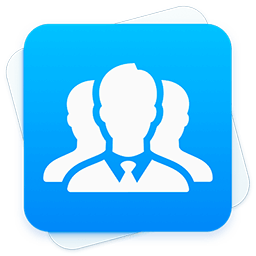In today’s fast-changing world, career planning no longer starts after college. More and more high school students are encouraged to explore future career paths through internships, volunteering, or part-time work. Writing a resume as a teenager might seem unnecessary at first, but it’s actually one of the most valuable exercises for personal growth and self-awareness.
Across the United States and Europe, students as young as sixteen create their first resumes — not only to apply for jobs but to learn how to tell their story. A student resume is more than a job application; it’s a statement of potential, a reflection of curiosity, initiative, and developing purpose.
Why High School Students Need a Resume
When teenagers hear the word “resume,” they often ask, “But what can I even put on it?” It’s a fair question — most high schoolers have limited professional experience. But a student resume is not about long employment history; it’s about showcasing skills, drive, and willingness to learn.
A Head Start in Career Development
In the U.S., many high schools encourage students to participate in community projects, student government, or sports teams. These activities develop crucial soft skills — leadership, teamwork, and responsibility. A resume helps translate those experiences into recognizable achievements.
In Europe, especially in Germany, the Netherlands, and the Nordic countries, high schoolers are also encouraged to gain early work experience through internships or weekend jobs. A resume allows them to present this experience professionally — something universities and employers deeply value.
A Mirror of Personal Growth
Even if you haven’t worked formally, you’ve probably done something worth mentioning — tutoring younger students, volunteering, helping organize a school event, or running a small creative project. These show initiative, reliability, and community engagement — all qualities recruiters look for.
Writing as Self-Discovery
Creating a resume also helps students understand themselves better. It forces them to reflect on key questions:
-
What am I passionate about?
-
What kind of work gives me energy?
-
How can I use my talents to contribute to others?
By answering these, a student doesn’t just fill in a document — they begin shaping their personal narrative.
How to Build an Effective Student Resume
A student resume focuses less on job history and more on potential, motivation, and transferable skills. Even modest experiences — helping at a local store, volunteering, or completing a school project — can show professional qualities if described thoughtfully.
Basic Resume Structure
| Section | What to Include | Example (U.S.) | Example (Europe) |
|---|---|---|---|
| Contact Information | Full name, email, phone, city | Sarah Lopez, Austin, TX | Tomáš Novak, Prague, Czech Republic |
| Objective | Short personal goal or statement | “To gain customer service experience and improve communication skills.” | “Seeking a part-time role in IT support to develop technical skills.” |
| Education | School, year, relevant subjects | Lincoln High School, GPA 3.7 | Gymnázium Olomouc, Focus: Math & English |
| Skills | Technical, language, and social | Microsoft Office, teamwork, bilingual (English-Spanish) | German (native), English (B2), time management |
| Experience | Volunteering, internships, small jobs | Babysitting, library volunteer | Tutoring, café assistant |
| Achievements | Awards, leadership, certificates | Science Fair Finalist, Student Council Rep | Erasmus+ Exchange, Art Competition Winner |
| Interests | Hobbies, extracurriculars | Robotics, photography, tennis | Reading, hiking, digital art |
A clear layout and simple language make a stronger impression than a fancy design. Recruiters want to see what you’ve done and what you’ve learned from it.
Where Students Can Actually Work
One of the biggest challenges for high schoolers is finding companies willing to hire them without interrupting schoolwork. Luckily, both in the U.S. and Europe, there are many organizations that welcome motivated young people — especially for entry-level, flexible, or weekend roles.
United States: Opportunities for Growth and Flexibility
Many American companies and chains actively hire high school students, offering part-time schedules that fit around school hours. These jobs teach discipline, responsibility, and customer interaction — invaluable soft skills for future careers.
Popular student-friendly employers in the U.S.:
-
Starbucks – Offers flexible part-time shifts, especially for students over 16. Employees (or “partners”) can even access tuition assistance for college.
-
Target and Walmart – Frequently hire high school students for cashier and floor-associate positions with structured training programs.
-
Chick-fil-A – Known for supporting youth employment with mentorship and leadership programs.
-
McDonald’s – Provides part-time work with career development paths and scholarships for employees pursuing education.
-
Local libraries and recreation centers – Often hire teens as assistants, helping organize events or maintain facilities.
These jobs not only provide income but also teach reliability, punctuality, and communication — qualities that will serve students in any career.
Europe: Apprenticeships and Early Career Pathways
In Europe, many employers view hiring teenagers as an investment in future talent. Countries like Germany, Switzerland, and Austria have strong apprenticeship traditions, where students split time between school and practical training.
Examples of European programs and employers:
-
Deutsche Bahn (Germany) – Offers apprenticeships for students in engineering, logistics, and customer service.
-
IKEA (Sweden, Germany, UK) – Provides flexible part-time roles and early-career internships with strong employee support.
-
Tesco and Sainsbury’s (UK) – Frequently hire 16- to 18-year-olds for part-time retail work, emphasizing teamwork and responsibility.
-
Decathlon (France, Spain, Poland) – Welcomes students for weekend shifts, encouraging growth in sales and sports knowledge.
For students in France or Italy, summer jobs are particularly common — picking fruit, helping at family-run cafés, or working in tourism. Even short seasonal experiences can add valuable entries to a resume.
Balancing Work and Study
Modern employers increasingly understand that school comes first. Many offer student contracts with limited weekly hours, remote opportunities, or weekend schedules.
For example:
-
In the U.S., minors often work up to 20 hours per week during the school year, following federal labor laws.
-
In Germany, students under 18 can work up to 40 hours weekly during holidays and 2 hours daily on school days.
Such flexibility allows young workers to gain real experience while staying focused on their education — the perfect combination for early career exploration.
Cross-Cultural Resume Expectations
Even though resumes serve the same purpose globally, the tone and expectations vary between the U.S. and Europe.
The American Resume: Action and Personality
U.S. employers appreciate initiative and individuality. Teenagers are encouraged to describe their achievements with strong action verbs — organized, created, assisted, led.
For instance:
“Organized a charity bake sale that raised $2,000 for local food banks.”
This kind of description shows both effort and measurable results — something recruiters love. Creativity and enthusiasm often count as much as experience.
The European CV: Clarity and Competence
European resumes, by contrast, tend to be more structured and formal. Bullet points are short and factual, and including grades, language levels, and certifications is common.
A German student might write:
“Completed two-week internship in accounting; assisted with data entry and filing financial reports.”
The tone is more modest, but the focus is on accuracy and reliability, which European employers highly value.
Many European students also use the Europass CV, a standardized format that emphasizes transparency and comparability across countries.
Turning Early Experience into Long-Term Growth
Getting a part-time job or internship as a high schooler does more than fill your schedule — it builds habits and networks that will benefit you for years.
Volunteering: Experience with Purpose
Many students gain their first professional skills through volunteer work. In the U.S., programs like Habitat for Humanity or Key Club International teach project planning and teamwork. In Europe, European Solidarity Corps projects allow students to travel and work for community causes.
These roles enrich both a resume and a worldview — they demonstrate empathy, global awareness, and initiative.
Digital Learning as a Resume Booster
Online education platforms have opened new doors for motivated students. Completing free or low-cost courses on Coursera, Khan Academy, or LinkedIn Learning shows curiosity and self-discipline.
Example:
“Completed a Coursera course on Python for Beginners; built a simple website using HTML and CSS.”
This kind of entry communicates initiative — a quality that employers consistently rate above experience.
Creating a Portfolio
In creative or technical fields, a digital portfolio can amplify a student resume. Platforms like Behance, GitHub, or personal websites showcase art, writing, or coding projects.
Even small projects demonstrate dedication, problem-solving, and creativity — all of which translate into employability.
Conclusion: Writing Your Resume Is Writing Your Future
A resume isn’t just a piece of paper — it’s a story of growth, curiosity, and courage to take the first step.
For high school students, the process of writing one builds more than professional awareness; it builds self-confidence. You learn to recognize your strengths, articulate your achievements, and imagine your future.
In both the United States and Europe, companies increasingly view motivated young people as assets — not just employees. By combining school, work, and personal growth, students develop independence and adaptability, the two most essential traits of the modern world.
Your first resume might not be perfect, but that’s not the point. Each line you add — every project, every small job, every new skill — becomes a step forward in your personal and professional journey.
So start writing. Start reflecting. Start growing.
Because your first resume isn’t about what you’ve already done — it’s about who you’re becoming.

